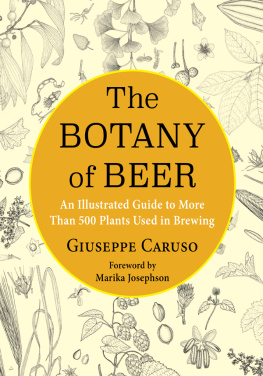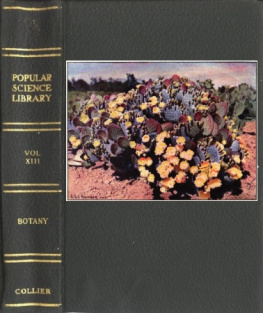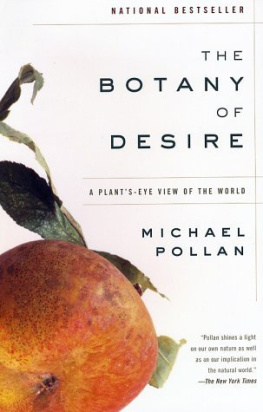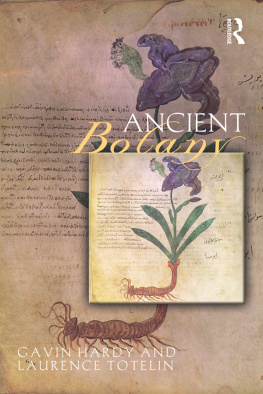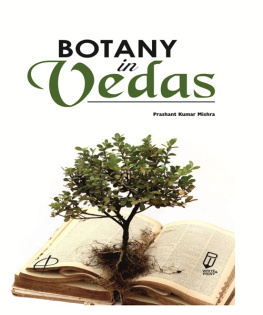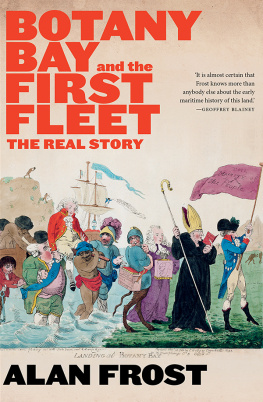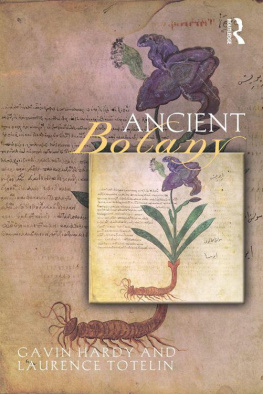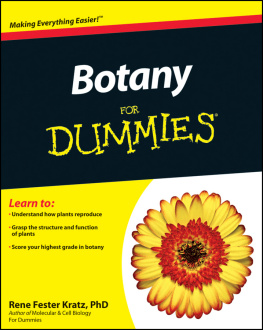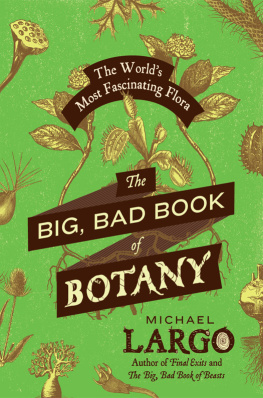Colonial Botany
Colonial Botany
Science, Commerce, and Politics in the Early Modern World
EDITED BY LONDA SCHIEBINGER AND CLAUDIA SWAN

University of Pennsylvania Press
Philadelphia
Copyright 2005 University of Pennsylvania Press
All rights reserved
Printed in the United States of America on acid-free paper
10 9 8 7 6 5 4 3 2 1
First paperback edition 2007
Published by
University of Pennsylvania Press
Philadelphia, Pennsylvania 19104-4112
Library of Congress Cataloging-in-Publication Data
Colonial botany : science, commerce, and politics in the early modern world / edited by
Londa Schiebinger and Claudia Swan.
p. cm.
Includes bibliographical references and index.
ISBN-13: 978-0-8122-2009-4 (pbk : alk. paper)
ISBN-10: 0-8122-2009-9 (pbk : alk. paper)
1. Botany, EconomicEuropeHistory. 2. Botany, EconomicEconomic aspectsEuropeHistory. 3. Botany, EconomicPolitical aspectsEuropeHistory. 4. Plant introductionEuropeHistory. I. Schiebinger, Londa L. II. Swan, Claudia.
SB108.E85C64 2004
Contents
Londa Schiebinger and Claudia Swan
Chandra Mukerji
Staffan Mller-Wille
Michael T. Bravo
Andrew J. Lewis
Daniela Bleichmar
Harold J. Cook
Londa Schiebinger
Antonio Lafuente and Nuria Valverde
Jorge Caizares-Esguerra
Julie Berger Hochstrasser
E. C. Spary
Judith Carney
Claudia Swan
Anke te Heesen
Kapil Raj
Marie-Nolle Bourguet
Introduction
Londa Schiebinger and Claudia Swan
In 1735 the Acadmie Royale des Sciences in Paris commissioned an expedition to the equatorial regions of South America to measure the length of a degree of meridian near the equator in order to determine the earths size and shape. The French were among the earliest foreign scientists to penetrate the interior of Spanish Peru: for centuries Spain had guarded the secrets of its American natural resources. Two emissaries of the Spanish governor accompanied the expedition to make independent observations and to keep an eye on the foreigners. Among the members of the expedition was the French explorer and mathematician Charles-Marie de La Condamine (170174). While La Condamine entered Spanish territory on official businessto find these measurements and to chart the course of the Amazonhe is famous for having taken this opportunity to spirit away seedlings of the precious Peruvian bark trees (Cinchona officinalis), from which quinine is derived, and of trees yielding valuable caoutchouc (rubber). Among other things, he wished to test the fabled Amazonian botanical poison curare, with which natives of the region poisoned their arrows, and to settle the question of whether Amazons (the warlike women said to inhabit the wilds of the river named after them) actually existed. Joseph de Jussieu (170479), a member of the dynasty of French naturalists, accompanied La Condamine, who called him his botanical eyes. Their dream was a familiar one: to procure (legally or not) valuable foreign botanicalsoften precious remedies; in this case, cinchonafor production in some part of the French Empire. La Condamine wrote of his prospecting for the valuable Peruvian bark:
On June 3rd I spent the whole day on one of these mountains [near Loja in present-day Ecuador]. Though assisted by two Americans of the region whom I took with me as guides, I was able to collect no more than eight or nine young plants of Quinquina [cinchona] in a proper state for transportation. These I had planted in earth taken from the spot in a case of suitable size and had them carried on the shoulders of a man whom I kept constantly in my sight, and then
Despite his care, the plants did not prosper (La Condamine was unaware that cinchona grows only at high altitudes). Nonetheless, while gathering geographical information he also collected seeds of potentially valuable plantshe mentioned ipecacuanha, simarouba, sarsaparilla, guaiacum, cacaoa, and vanillaand kept his eyes open for treasures yet unknown to Europeans.
La Condamines interests, motivations, aims, and failures are representative of the volatile nexus of botanical science, commerce, and state politics that is the focus of this volume. Throughout the early modern period, from the earliest voyages of discovery, naturalists sought profitable plants for king and country, personal and corporate profit. By surreptitiously acquiring seedlings of the valuable Peruvian bark, La Condamine sought to undercut the Spanish monopoly on this antimalarial, which was valuable to Europeans in their efforts to colonize tropical areas. Like so many voyaging naturalists, La Condamine depended on but did not quite trust his native guides, whom he kept under constant surveillance. Moreover, like other naturalists, La Condamine overestimated the extent to which plants could be appropriated and reacclimatized; his efforts to transplant the delicate cinchona plants were in vain. In a similarly ill-fated assertion of the hegemony of European botanical practices and the unity of global botany, the great Carl Linnaeus (170778) sought to grow tea in the frigid wilds of Sweden.
Colonial botanythe study, naming, cultivation, and marketing of plants in colonial contextswas born of and supported European voyages, conquests, global trade, and scientific exploration. The expanding science of plants depended on access to ever farther-flung regions of the globe; at the same time, colonial profits depended largely on natural historical exploration and the precise identification and effective cultivation of profitable plants. Costly spices and valuable medicinal plantsnutmeg, tobacco, sugar, Peruvian bark, peppers, cloves, cinnamon, tearanked prominently among the motivations for voyages of discovery. Christopher Columbus (14511506) and Vasco da Gama (14691524) aimed to secure sea routes to the rich spices, silks, and dyes of the Moluccas, China, and India that would enable their countries to conduct trade without the intermediary of Middle Eastern and Venetian merchants.
This volume presents case studies that, together, chart the shifting relationship between botany, commerce, and state politics in the early modern period. The essays gathered here, written by scholars as international as their subjects, study botanical endeavors in Europe and its colonies as well as in Siberia. Chronologically they cover three centuries (roughly 15501800) of varying colonial and botanical theories and practices. Colonial practices, scientific organizations, and commercial connections differed not only over time but also from place to place: the absolute monarchies of Spain and France operated differently in this regard from the United Provinces of the Netherlands, the constitutional monarchy in England, or other states. It is our thesis that early modern botany both facilitated and profited from colonialism and long-distance trade, and that the development of botany and Europes commercial and territorial expansion are closely associated developments. In ways that the remainder of this introduction will suggest, the essays presented here adumbrate an emerging cultural history of plants and botanical practices in Europe and its far-flung colonies and possessions.
Colonial Politics of Botany
One of the primary aims of this volume is to chart a new map of European botany along colonial coordinates, and in this sense the book offers a lively challenge to the historiography of early modern botany. A resilient and long-standing narrative in the history of botany has characterized its rise as coincident with and dependent on the development of taxonomy, standardized nomenclature, and pure systems of classification.
Next page

